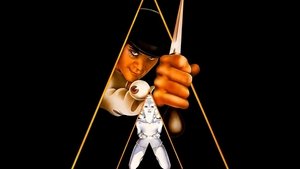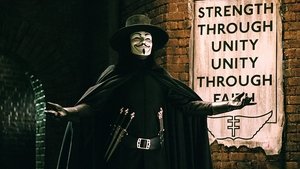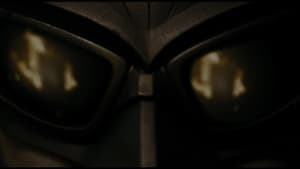Movies that make you want to see the world burn: Anarchy on screen
From the chilling descent into chaos in "The Dark Knight" to the dystopian struggles of "The Hunger Games," these films explore the darker impulses of humanity and society's unraveling. Prepare for a cinematic journey through narratives where the world teeters on the brink, or has already succumbed to, widespread anarchy.



Ever felt like the world just needs a good shake-up? Or perhaps, a complete overhaul, even if it means watching it all burn down? Cinema has a fascinating way of exploring these destructive impulses, often through the eyes of characters who believe the only way forward is through chaos and destruction. This isn't just about explosions and mayhem; it's about the philosophical underpinnings of anarchy, the societal breakdown, and the human cost of such radical change. Think about the Joker's nihilistic vision in The Dark Knight, a character who simply wants to see the established order crumble without any grander plan, just for the sheer spectacle of it. Or consider the incisive social commentary in Fight Club, which critiques consumerism and modern masculinity through a lens of violent rebellion. These films often reflect our own anxieties about societal control, freedom, and the potential for both individual and collective uprising. They delve into the psychology of those who seek to dismantle systems, whether for perceived justice, personal gain, or simply a desire for raw, unfettered freedom. From the dystopian futures where humanity is pushed to its limits, as seen in Children of Men, to the more personal acts of rebellion that spiral into widespread unrest, these movies offer a compelling, often unsettling, look at what happens when the desire to "see the world burn" takes hold. They challenge us to consider the fine line between order and chaos, and what might drive someone to push society over the edge.
13. Blade Runner (1982)
Blade Runner is a seminal work of sci-fi noir that explores themes of artificial intelligence, humanity, and existential dread in a rain-soaked, futuristic Los Angeles. While not directly about 'burning the world,' its dystopian setting and the replicants' desperate fight for existence reflect a world that is already decaying and where the lines between creator and creation are dangerously blurred. The film's atmosphere is one of pervasive gloom and moral ambiguity, showcasing a future where human connection is scarce and the environment itself feels on the verge of breakdown. It's a more subtle take on societal decay than outright destruction.

12. The Maze Runner (2014)
The Maze Runner plunges its young protagonists into a mysterious, ever-changing labyrinth, with no memory of their past. It's a story about survival, mystery, and the desperate search for answers in a world designed to test their limits. While the film doesn't directly portray a desire to 'burn the world,' it's set within a world that has clearly undergone a cataclysmic event, and the characters are actively trying to escape and understand the forces that have orchestrated their perilous situation. It's about breaking free from a controlled environment, hinting at larger societal forces at play.

11. The Hunger Games (2012)
The Hunger Games transports us to Panem, a dystopian society where children are forced to fight to the death in a televised spectacle. While the focus isn't on a desire to 'burn the world' in the traditional sense, the entire premise is built on the oppressive Capitol's control and the districts' simmering resentment. Katniss Everdeen's journey becomes a symbol of rebellion against this brutal system, sparking a revolution that seeks to dismantle the existing power structure. It's a story about fighting back against injustice, even if it means tearing down the established order.

10. The Purge (2013)
The Purge introduces a terrifying premise: for one night each year, all crime, including murder, is legal. This concept alone speaks volumes about a society on the brink, where the thin veneer of order is deliberately stripped away. The film explores what happens when humanity's darkest impulses are given free rein, exposing the fragility of civility and the deep-seated divisions within society. It's a chilling look at a world where the desire to 'burn' or destroy is not just unleashed but sanctioned, leading to chaotic and horrific consequences.

9. The Road (2009)
The Road, based on Cormac McCarthy's novel, is a harrowing and unflinching depiction of a post-apocalyptic world. It follows a father and son as they journey across a desolate landscape, struggling to survive against starvation, cannibals, and the sheer emptiness of their existence. The film is stark and somber, focusing on the primal bond between parent and child amidst the ruins of civilization. It's a powerful exploration of human resilience and morality in a world that has already been 'burned' to ashes, where the fight is simply to endure and retain a shred of humanity.

8. Children of Men (2006)
Alfonso Cuarón's Children of Men presents a bleak, yet profoundly moving, vision of a dystopian future where humanity faces extinction due to widespread infertility. In this crumbling world, hope emerges in the most unexpected place, leading a disillusioned civil servant on a perilous journey. The film is renowned for its immersive, long takes and gritty realism, drawing the audience into a society on the brink of collapse. While not about actively 'burning' the world, it powerfully depicts a world that is already falling apart, and the desperate struggle to find a reason to keep it from completely disintegrating. It's a powerful statement on hope in the face of utter despair.

7. Oldboy (2003)
Park Chan-wook's Oldboy is a brutal and visceral South Korean neo-noir thriller that explores themes of revenge, punishment, and the devastating consequences of long-held secrets. The film's protagonist, Oh Dae-su, is inexplicably imprisoned for fifteen years and then suddenly released, embarking on a quest for answers and vengeance. Known for its iconic single-take hallway fight scene and shocking twists, Oldboy is a masterclass in tension and psychological torment. It's a film where the desire for retribution burns so fiercely that it threatens to consume everything in its path, echoing a destructive force that can ripple through lives.

6. American Psycho (2000)
American Psycho is a satirical, dark comedy that delves into the superficiality and moral decay of 1980s yuppie culture. Christian Bale delivers a chilling and darkly comedic performance as Patrick Bateman, a wealthy investment banker who harbors a gruesome secret life. The film, based on Bret Easton Ellis's controversial novel, uses extreme violence and psychological horror to critique consumerism, identity, and the emptiness of materialism. It's less about literal societal destruction and more about the internal rot that can exist within a seemingly perfect facade, reflecting a desire to see the 'world' of superficiality and hypocrisy exposed and shattered.

5. Watchmen (2009)
Zack Snyder's Watchmen is an ambitious adaptation of Alan Moore's groundbreaking graphic novel, diving into a world where retired superheroes grapple with moral ambiguities and a looming nuclear threat. The film's non-linear narrative and complex characters, such as the nihilistic Rorschach and the all-powerful Dr. Manhattan, explore themes of justice, power, and the blurred lines between hero and villain. It's a visually stunning film, with meticulous attention to detail that brings the comic's intricate world to life. The film ultimately questions whether humanity is worth saving, and if a grand, destructive act might be the only way to achieve peace, making it a fitting entry for those who contemplate societal upheaval.

4. V for Vendetta (2006)
V for Vendetta offers a compelling vision of rebellion against a totalitarian regime. Set in a dystopian future, the film follows a mysterious anarchist known only as V, who uses acts of terrorism to ignite a revolution. Natalie Portman's Evey Hammond is our entry point into this world, and her transformation is central to the narrative. The film, based on Alan Moore's graphic novel, is packed with powerful monologues and iconic imagery, particularly the Guy Fawkes mask. It's a story that champions the power of ideas and the individual's ability to challenge oppressive systems, even if it means resorting to extreme measures to achieve freedom. It certainly taps into the sentiment of wanting to dismantle a corrupt system.

3. A Clockwork Orange (1971)
Stanley Kubrick's A Clockwork Orange is a chilling yet brilliant exploration of free will, societal control, and the darker impulses of humanity. Malcolm McDowell's unforgettable performance as Alex leads us through a dystopian future where ultraviolence is a form of perverse entertainment. The film's aesthetic is as striking as its themes, with its iconic costumes and the unsettling blend of classical music with brutal acts. Kubrick masterfully uses satire to critique authoritarianism and the dangers of behavioral conditioning. It's a challenging watch, no doubt, but one that provokes thought and discussion about the very nature of good and evil, and whether true rehabilitation is possible without genuine choice. This film absolutely captures a desire for a radical societal shift, however unsettling its methods.

2. Fight Club (1999)
Fight Club is more than just a movie; it's a cultural phenomenon that dissects consumerism and the search for meaning in a capitalist society. David Fincher's direction is razor-sharp, pulling you into a world where disillusionment breeds a radical form of rebellion. Edward Norton and Brad Pitt deliver electrifying performances as characters navigating a world they feel alienated from. The film's infamous twists and turns are legendary, but it's the underlying philosophical questions about identity, control, and the desire to dismantle the status quo that truly resonate. It's a raw, unflinching look at the destructive impulses that can arise when people feel trapped, and it's certainly a film that embodies the desire to 'burn it all down' and start anew.

1. The Dark Knight (2008)
If you're looking for a film that truly embodies the spirit of chaos and societal breakdown, look no further than The Dark Knight. Heath Ledger's portrayal of the Joker isn't just a performance; it's a force of nature. His iconic line, 'Some men just want to watch the world burn,' perfectly encapsulates the nihilistic core of the film. Christopher Nolan crafted a masterpiece that delves deep into the psychological battle between order and anarchy. It's not just a superhero movie; it's a crime epic that challenges our perceptions of heroism and villainy. The practical effects, the intense score by Hans Zimmer and James Newton Howard, and the gripping narrative make this a cinematic experience that stays with you long after the credits roll. It's a film that asks profound questions about society's breaking point.

